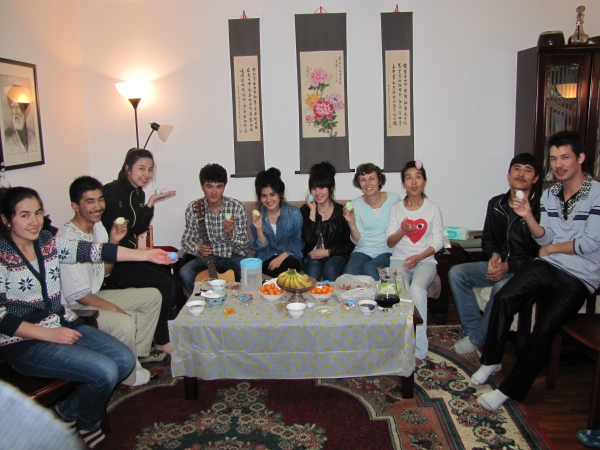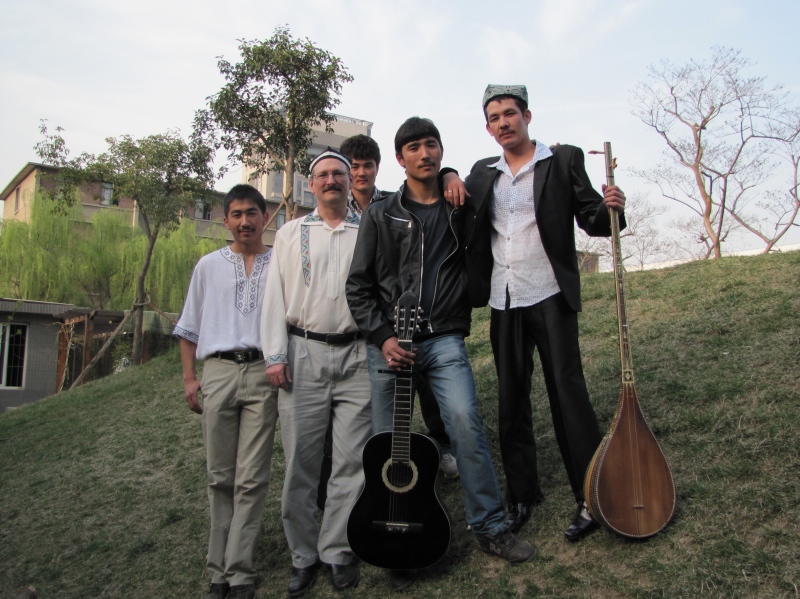I’m responsible for planning the language lessons for three girls who have come to Xi’an to study Chinese for one semester. I’ve been a fan of Greg Thomson’s Growing Participant Approach for several years now, ever since I attended one of his seminars in how to become a language coach, and I thought this would be a great opportunity to put it into practice.
The basic concept of his approach is that when you want to learn a new language, you shouldn’t think of it as just another academic subject like math, history, or science that you would take in school. Rather, you should think of it as experiencing a new culture, or as Greg says, “Don’t learn the language! Rather, relearn the world, as it is known and shared by the people whose language you are learning.”
This has major ramifications for not only how instruction and learning take place, but also the assumptions that we attach to the words we use, like “teacher” and “student.” Since our goal is to learn how to participate in a new culture, and the word “student” has certain assumptions attached to it, this approach uses the term “growing participant” as a more fitting term that describes who we are as we learn about the new culture, as well as to help avoid the assumptions attached to the word “student.” Likewise, the word “teacher” carries with it definite assumptions, assumptions that might not be conducive in helping a person participate in a new culture. The responsibility of the person who introduces a new culture to a GP (growing participant) is much more than just presenting lessons and correcting homework; they need to understand that the GPs will begin with about the same communication ability as a newborn, at least in the new culture. Therefore, they will need to have the attitude of a nurturer, helping the GPs along in their ability to comprehend the new culture, encouraging them and correcting them when necessary. So rather than calling this person a teacher, this approach uses the word “nurturer.”
After presenting the basis of this approach to more than 20 Chinese grad students who wanted a chance to be the “nurturer” and then interviewing them all, I settled on three of them that seemed to grasp the concept best. Then the real work began – modifying the sample sessions in Greg’s materials so that it would be tailored to the Chinese language. Then the sessions – and the excitement – began!
One of the distinctives of Greg’s approach is that for the first three weeks the GPs do not speak during the sessions. Listening and comprehension are developed via a variety of activities, while the other three language skills of speaking, reading and writing are not introduced at all. The theory of this approach is that you are able to learn a LOT more of the new culture and language if you are only responsible to comprehend what you hear rather than also being responsible to reproduce.
From the very first session, the accuracy of this approach was evident. By the end of the first 3-hour session (actually, three 50-minute sessions with 10-minute breaks between) the girls were able to accurately comprehend over 60 words!
Then the reality of how fast they were able to learn when they only needed to focus on listening became very obvious at the end of this first session when they were taught how to say a couple of “survival sentences” that would equip them to be able to go shopping. For this first session it was just the numbers 1-10 and the sentence “How much does this cost?” When they switched from the listening exercises to trying to speak, their progress – which up until that point had been in overdrive – dramatically slowed to an agonizing crawl, with them struggling to accurately reproduce the most basic sounds in Chinese.
Yep, that was definite proof in the value of the Growing Participant Approach!






